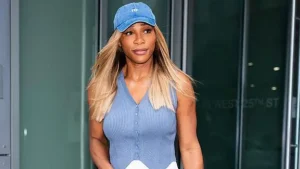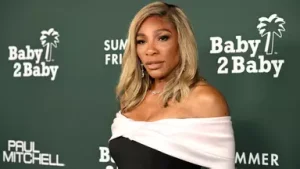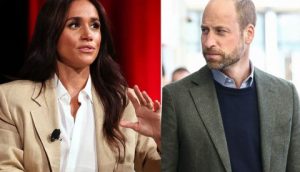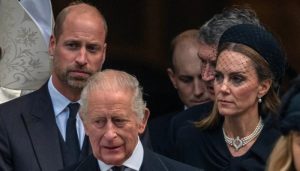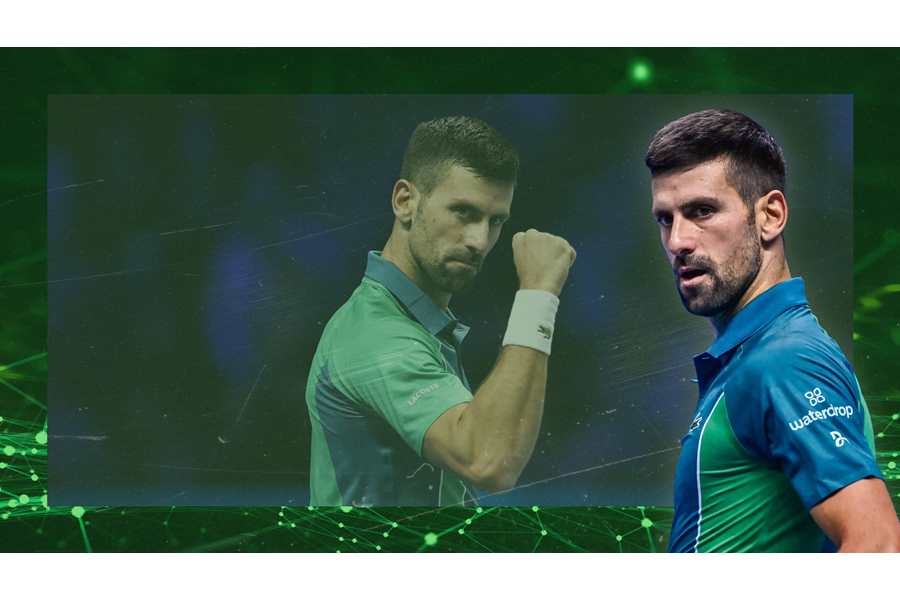
Novak Djokovic, still healthy and motivated at age 36, dominated tennis last year—but don’t drape that gold medal around his neck just yet.
As we make our way toward the 2024 season—which begins Friday, December 29 with the United Cup—our writers and editors tackle the most important questions of the new year.
Sixth question: Will Novak Djokovic finally get his long-sought Olympic gold medal at Roland Garros?
Scroll down past this article to read more Burning Questions on 2024.

STEVE TIGNOR: Djokovic is likely on his way to being crowned the game’s undisputed GOAT, but he hasn’t quite won everything there is to win in tennis. Despite four tries, an Olympic gold medal has eluded him. Losses to Juan Martin del Potro and Rafael Nadal at past Games have left him in tears, and his defeat to Pablo Carreño Busta in Tokyo in 2021 left him enraged—and his racquet destroyed. This is something he clearly wants.
Djokovic will give it a fifth go in late July at the Paris Olympics, which will hold its tennis event at Roland Garros. He’s happy with that locale because he “knows the grounds well.” Quite well: He’s won 92 matches and three titles there, and he could have another by next summer. At that point in the season, though, the question for him might be about time rather than location. Djokovic will be 37 by then, and he’ll likely be coming off two long Grand Slam campaigns in Paris and at Wimbledon.
In 2023, he bounced back quickly after those events, winning right away on hard courts in Cincinnati and at the US Open. But this time he’ll be returning to clay, a surface that is the specialty of two other top players, Rafael Nadal and Carlos Alcaraz. Whatever his all-time status is, a Djokovic win in Paris with the two Spaniards in the draw could be considered a surprise.
Which makes me think that Olympic gold might end up being be this Superman’s Kryptonite, after all.
If you strip away human greed and such, bronze has far greater importance to humankind. We had a 1300-year Bronze Age, right? Try telling all that to Novak Djokovic.
PETER BODO: As far as colors go, bronze is not all that different from gold. If you strip away human greed and such, bronze has far greater importance to humankind. We had a 1300-year Bronze Age, right?
Try telling all that to Novak Djokovic. His career medal haul at the Olympic Games consists of exactly one bronze in three cracks at that third-place medal. He continues to lust for gold. While Djokovic, still healthy and motivated at age 36, dominated tennis last year don’t drape that gold medal around his neck just yet.
The Olympics, like the traditional Davis Cup, is weird, but in a good way. It’s an “all bets are off” competition. Miloslav Mecir, Marc Rosset and Nicolas Massu earned singles gold at Olympic Games, while Pete Sampras, Boris Becker and Roger Federer did not. The Big Three—Djokovic, Rafael Nadal, Federer—utterly ruled men’s tennis for almost two decades, yet they collectively snared just one singles gold (Nadal, Beijing 2008).
Various factors account for the volatility of the quadrennial competition: a compressed schedule, the best-of-three format, Davis Cup-style pressure, the awkward timing on the tennis calendar, the pressure on players from nations where winning an Olympic gold medal is the highest individual achievement in sports.
Djokovic, an unabashed Serbian patriot, had his sights set on a “Golden Slam” (the four majors and Olympic gold) but he bit off more than he could chew in the 2020 Tokyo games (played in 2021 due to the pandemic) by entering both singles and doubles. He lost two of his final three singles matches (including the bronze medal clash with Pablo Carreno Busta), and played a total of 16 sets over the course of seven matches in four days. He left Tokyo complaining of exhaustion and pain but promised: “I know that I will bounce back. I will fight for my country to win medals.”
There’s a greater chance in Paris that something will go wrong for Djokovic than that everything will go right.
https://www.instagram.com/djokernole/?utm_source=ig_embed&ig_rid=8b38db23-6928-40a7-a8a1-af3e30b22ccf
MEGAN FERNANDEZ: No doubt, I immediately thought. It’s the one piece of significant hardware missing from Djokovic’s trophy case, thus he’ll prioritize it. Whatever Djokovic prioritizes, he tends to accomplish.
This prediction seemed like a lock—as much as any prediction can. The Olympics will take place at Roland Garros in early August, and I don’t think Nadal will be in one piece after playing three Slams. Novak seems like the heavy favorite.
I asked my tennis pro the same question during a clinic, mostly for validation. I was sure I had this figured out.
“No way,” he said. “He won’t prioritize it.”
While everyone else in the clinic picked up balls, Karl (Krowder, at the Indianapolis Racquet Club) and I argued this out.
“Don’t you think he wants the full box set?” I asked.
“Not more than any other Slam,” Karl said.
“You think he’d rather than eight or nine Wimbledons and no Olympic gold than seven Wimbledons and an Olympic gold?” I pressed.
“Absolutely. As many Wimbledons as he can get,” Karl said. “No one remembers Olympic medalists.”
I rattled off a few—Zverev, Murray, Nadal, Massu, Rosset.
“Exactly, Marc Rosset!” Karl said flamboyantly.
Maybe the Olympics are still for the Rossets, Massus and Murrays, not the GOATs. If Djokovic wants an Olympic gold, wouldn’t he have one by now?
Maybe he’s right, I thought. Maybe the Olympics are still for the Rossets, Massus and Murrays, not the GOATs. If Djokovic wants an Olympic gold, wouldn’t he have one by now?
But wait—isn’t this his last chance? Maybe not! Djokovic could still be relevant in 2028.
The caveat, to me, is that he could realistically win the Golden Slam this year, which no male player has ever done. Those historic achievements motivate Djokovic at this point in his career. If he bags the first three Slams, I think he will give everything he has to win gold. If not, I’m with Karl. The best-of-three format at the Olympics and the history of non-Slam winners climbing the podium suggests that GOATs don’t rule the Olympic field.
Stay tuned for Sunday’s question: Which player that we’re not talking about right now will surprise the most?
